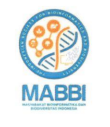Production of Polyclonal and Its Application in Immunoassays: A Systematic Review
Abstract
According to their antigen-receptor specificity, lymphocytes are believed to generate approximately one thousand clonal populations in the immune systems of the majority mammals. Due to their heterogenous structures, polyclonal antibodies can bind to numerous antigen epitopes. The polyclonal antibody is more likely to successfully attach to the specified antigen under a variety of different test conditions, despite decreasing specificity and possibly increasing non-specific reactions. In a wide range of immunoassays, polyclonal antibodies are essential reagents. Production of polyclonal antibodies involves numerous steps. However, it is possible to achieve the greatest immune responses while minimizing the discomfort of the animal by carefully planning an immunization protocol. The choice of the experimental animals, the immunization protocol, the use of adjuvants, the route of administration, blood sampling, serum collection, and purification of the antibodies collected are all factors that must be taken must be taken into consideration. The crucial steps in the production of polyclonal antibodies are discussed in this article, with a focus on their use in immunoassays.
Keywords: antibodies; immunization; immunoassay; polyclonal; production
Full Text:
PDFDOI: https://doi.org/10.47007/ijobb.v8i1.200
Refbacks
- There are currently no refbacks.
| Indonesian Journal of Biotechnology and Biodiversity Published by: Publishing Department of Esa Unggul University Arjuna Utara No 9 Street Kebon Jeruk Jakarta - 11510 Indonesia | |









.png)

